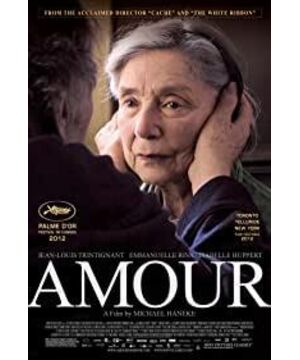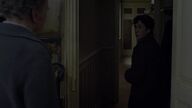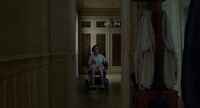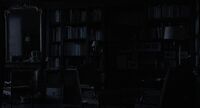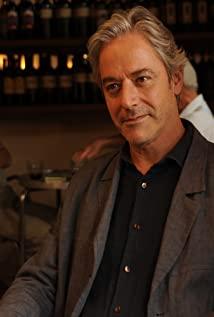2001 "Piano Teacher" won the Jury Prize, 2005 "Hidden" won the Best Director Award, 2010 won the Palme d'Or with "White Ribbon", and 2012 Austrian director Michael Haneck again With "Love", he won the Palme d'Or, the highest honor at the Cannes Film Festival. "Love" moved many people, and even appeared on the list of all media, movie fans, filmmakers' associations and professional film awards. Michael Haneke is as serious and rigorous as ever. He said that he is a person with little imagination, so audiences often see the shadow of his past works in his films, from the theme, genre, director style, and even the story. Cruelty. He said that the starting point for what kind of film he chooses to make is always his own personal life, but he never puts his personal experience into the film. His film only asks questions for the audience and gives the film as open-ended as possible. The show, without any judgment of his own, allows the audience to think, and the answer is all in the audience.
"Love" is the kind of film that is only being shown. It reminds me of another highly-sought spiritual documentary "Samsara" ("Samsara") in the feature film section of the Oscars for Best Documentary next year. After 20 years, the director Ron Frick of "Heaven and Earth" spent 5 years traveling to 25 countries around the world, using time-lapse photography and downgrading to edit this "pictures are so beautiful that they are breathtaking." Documentary. "Reincarnation" explores the profound philosophical proposition of life, but there is no dialogue in the film. The propositions of "all things are connected", "the unity of nature and man" and "reincarnation of life" are all expressed through images. In the film, Keynesianism and The expression of images such as the Matthew effect is even more shocking. The whole movie is just showing, the director has no judgment, he just left blank, all thoughts and final answers are private to the audience. This is very similar to the method of "Love", as much as possible in the play with open endings and white space. Another example is "Once Upon a Time in Asia Minor" by the famous Turkish director Nuri Big Ceylon. This film also won the jury award at the 64th Cannes Film Festival. The power of white space in the film is also very strong. It seems to be dialogue. Neither the events nor the events can piece together the so-called truth, and the movie does not clearly tell you anything. The cruel fact lies outside the picture and the movie, and requires the audience to think and explore. It is normal to find the truth through the dialogue of different roles and the status quo of the social system. It is normal to leave people at a loss. It seems that major directors of literary and artistic films trust the IQ of their fans.
At this point, domestic directors of similar themes can't trust the audience. For example, "Flying over the Nursing Home" is like director Zhang Yang's use of creative methods to drive ducks on the shelves, and can't pull the shit to death. Of course, it is better to call it. Business creation for the occasion. "Single Men and Women" and "The Great Magician" magic cold rice, they fried it again; "Old Boy" and "Art Life" style songs, dances and jokes, they also learned to copy the original, of course, there are that kind of calculation and dad How much time can Mom spend with Weibo, for fear that the audience won't understand, she has to shout out. It makes people feel very vulgar, strong in purpose, blunt plot, too preaching, and without edges and corners. Except for the problem of aging, which can make people think and be moved by oneself, there is nothing else. Of course, I compare it with "Love" here, which is obviously boring. We should mention Hong Kong director Xu Anhua’s "Sister Tao". Everyone loves "Sister Tao". For the sake of commercialization, "Sister Tao" chose to have a number of well-known filmmakers play guest appearances. Xu Anhua’s handling of this aging subject is often mentioned by the media about the reality of herself and her old mother. Director Xu also does not shy away from talking about the topic of elderly homes that she might also choose when she gets old. Many people like her, her truthfulness and her love for movies. As the leading figure of the new wave generation in Hong Kong, Xu Anhua was the only one who was still making movies like back then, expressing his thoughts and ideas in movies. Many of them no longer make movies, or like Yan Hao and Tan Jiaming, have new works first, and others like Tsui Hark and Yu Rentai have begun to make commercial blockbusters. For example, in "Sister Tao", the scenes circulate in the nursing homes, silently capturing the world's various states of affairs. This is a scene with the creator’s emotions and opinions. In addition to the elderly people who are actually living in the nursing homes, the scenes There are actors performing with tasks. Another example is the final view of life and death in the final film. The pastor quoted the passage in the "Ecclesiastes" in the "Bible" "A time to live, a time to die. A time to cry, a time to laugh. A time to mourn, a time to dance" to express the creator and reality in reality The character's mentality of "everything has a schedule, and everything in the world has a schedule" mentality, uses religion to liberate the mind from life and death.
Go back to "Love" and look at the power of white space in the film. Michael Hanek said that it is difficult to say clearly what entanglement of a work will bring to the audience. It is like going to a concert, and it is difficult to specifically explain its specific results. This is exactly what his work gives people the greatest feeling. His film shows a serious and heavy story, but you can’t see his subjective and personal judgments, but the audience will have different feelings of watching the movie. Harvest. Many people in China have noticed the aspects of aging, disease, life and death, and dignity, but few film reviews mention the issue of middle-class values. In the film, George and Anne (played by Jean-Louis Trignant and Emmanuel Riva). The old couple is a typical middle class in Europe. They are piano music teachers with a good income and decent income. Work and elegant taste. This group of people is very "face-saving", and they are decent in their lives. This is very similar to some wealthy intellectual families in China. They often have to pursue taste in everything they do, behave politely, even if they encounter unhappy things, they will pretend to be magnanimous and smiling on the surface. There are many films that explore the hypocritical side of the middle class, such as "The Prudent Charm of the Bourgeoisie", such as the American "Graduate", such as Fellini, Bergman, Antonioni, Bunuel, Fassbinder, and Ge There are many movies by Dahl, Rohmer and others, or you can read Zhang Qiu’s book "The Prudent Charm of the Middle Class—Middle Class Images of World Film Masters". I believe everyone knows the "face-saving" of the middle class. "Engineering", they tend to see this as more important than anything else.
The couple in "Love" don't have to worry about medical insurance and money. What bothers them is face and dignity, which is their image in the eyes of others. After the failure of Anne's carotid artery embolization operation, she was sentenced to death by the disease, he was paralyzed in bed, and she had to rely on others to take care of her daily life. Her situation is getting worse and worse, losing her behavior and self-care ability day by day, as well as losing her dignity and face image as a person, which makes her life worse than death. Of course, this is something that many Chinese audiences find difficult to understand. They think this old couple is too rational and crazy. Most Chinese audiences are trained by TV dramas. Nowadays, as long as you turn on TV dramas, domestic shows are full of blind dates, buying a house, marriage, dreams, talent shows, all kinds of boring advertisements and vulgar soap operas. This is the case across the entire mainland. What kind of aesthetic taste do you expect the audience to have? Television is like a huge cult organization that brainwashes viewers. It brainwashes viewers day after day, and people gradually lose their ability to think and recognize themselves. Even networks with a little free space must be supervised by relevant authorities. Now, everyone is working hard to believe in blind date, getting married, and buying a house. They are all pursuing some so-called dreams, but few people stop to think about life, enjoy life, do what they want to do, and live for themselves for a few more days. Everyone is working hard to make money, just like money is their own master. When they don't have money, they are dicks. Whenever they become rich, they will make themselves like coal bosses, talking about their taste and self. For example, do you see anyone around you who often reads and buys books? Although domestic books are now the cheapest cabbage price, online books are still being discounted or discounted. In Gansu, China, migrant workers from rural areas who took care of their paralyzed wife for 8 years finally became desperate. The couple wandered by the Yellow River for 12 hours. Finally, the wife voluntarily asked her husband to push herself into the river. In addition to the torture of the disease, they are also facing debts in arrears and the future of their children. Children have to go to school and will have to spend more money in the future. I dare not analyze the social significance behind this news incident and the root cause of the tragedy, but everyone will understand it in their hearts. This is very similar to the "Love" that happened in Paris, France. It is all love, but there are also different differences. People who are still struggling to earn money and have enough food and clothing have a hard time understanding the problem of face. Of course, everyone knows dignity, but face engineering is different from dignity. It is more hypocritical, so some people will disagree with George’s use in "Love". The pillow suffocated Annie, an expression of "love" that allowed her to get free soon.
Although "Love" looks simple, you can see Michael Haneke's consistent style, calm, reserved, introverted, cruel theme, open white space and minimalism. This is his most personal work. The personalization here refers to the fact that there are few patterns in the story. There are only an old couple, a few visitors and an apartment with two bedrooms, two halls, one kitchen and one bathroom. Haneke subtracted from the movie, to minimize the drama of the story, the dialogue, photography and scene scheduling, and focused on refining emotions, which is the kind of emotion common to all mankind. Except for the opening of the film and the complicated camera scheduling, almost every scene in the film is as simple as a one-act play. There is a reason for the complicated photography schedule at the beginning of the film. It hides a secret and at the same time explains the layout of the apartment. The camera was dispatched as the police broke the door. The camera followed the police who entered the door to the living room. The police pushed the study door and the door was locked. He opened two windows and then returned to the door. Someone asked him to tell about the family. The camera then followed the police to the bedroom, and the audience saw the dead Anne lying neatly on the bed. The secret is in the bedroom, and some speculate that George committed suicide in the end. The answer should be this. George finally wrote a suicide note, sealed the bedroom door, and then lay on the bed. At the end of the movie, when the daughter Eva played by Isabel Huppert came to her parents' apartment again, she unlocked the door and walked around the room. The house was empty, even the furniture was gone. Almost all other scenes in the film are minimalist in scheduling. When the actors move around in a panoramic scene, the camera will have a simple pan, or a simple scene switch; when the actor sits down or moves. When the amplitude is small, the film is almost always a panoramic view, using a fixed focus lens, occasionally cutting into the front and back to play dual camera positions, just like the facial close-up posters of the two couples in the movie. For example, Huppert's scenes are almost all sitting and talking. For example, the main scene of George suffocating Anne at the end. From George to the bed to the end, a long shot lasts more than 6 minutes. Although this is a flashback story, it uses a traditional linear narrative. The story is completed in an apartment from the beginning to the end, everything is minimal. Michael Haneke’s authorial style has become so skilled that it sounds like a loud voice, an elephant invisible master, you can hardly feel the existence of a camera, its calm, patient, and detailed documentary shows everything without one. A little bit of subjective personal emotions, this is the hardest part of this seemingly simple movie. The shots of Iranian-born French photographer Dairis Congee are known for their emotional scenes. Films such as Woody Allen's "Midnight Paris" and David Fincher's "Seven Deadly Sins"
Another difficult aspect of "Love" lies in the details and white space. It is not afraid that the audience will not be able to understand it. It is just being displayed and it depends on people to see it. For example, Anne’s desire for death, in the film George went home early after attending the funeral, and saw Anne fell from her wheelchair to the ground with the window open. They didn’t mention it, but the meaning behind it was that George loved Anne deeply and couldn’t let her go, so he would go home early. This made Anne, who wanted to commit suicide, decide to live well for her husband, and then have the next thing. The exercise is related to the radiant face of the student Alexandre Tharau during the visit. Of course, this is also related to the face project of the middle class. Salou is also the pianist of the opening concert. He has the title of Piano Prince in France. The piano pieces in "Love" are all written by him. Another example is Annie's painful shouting of "pain" and "mother". This is definitely not just the unconscious and meaningless words of such patients as the nurses said. Anne asked George when she was sober, did she want to watch her image be destroyed by letting her live without self-esteem? Between them is love to let each other stick to each other, and it is also love to let one person help the other to get free as soon as possible. This is very similar to the theme of the Belgian movie "Forever" last year. The film is adapted from the real experience of Mario Verstraete, the first patient to be euthanized in Belgium. He suffered from multiple sclerosis. When the illness made him lose his ability to act, he slowly felt that his life was over, his ideal was over, and the future was over. Instead of living unhappy without dignity, he decided his life by his own will. He chose euthanasia. This kind of story that oscillates between morality and human affection seems quite controversial, but the understanding, affection and love gained by the parties behind the controversy is even more touching. Many of these cruel family films about euthanasia are like this.
"Love" is a film that requires the audience's careful taste. Behind every dialogue and every detail, there are intentions that the creator did not say. The running water, flowers, pigeons and oil paintings in the film, even the old man’s nightmare and the illusion when listening to piano music, and finally the old couple leaving the apartment neatly dressed together are all obvious. In the movie, this loving old couple finally chose this cruel expression of "love" for both external and internal reasons. The pigeon represents the external force. The first time the pigeon appeared, George drove the pigeon out of the apartment, and then he was fired. Nursing staff no longer wanted people to visit and began to ignore phone calls and messages. George grabbed the pigeon for the second time and released it after gentle comfort. In fact, he doesn't reject the kindness of others in his bones, but these kindness will not help him. His rejection of others (external force) is also related to "face", while internal force comes from the love between the two old people. George's love allowed Anne to dispel the desire to live for him, but that kind of life gradually became a nightmare for both parties, and the gentle image of running water and flowers could imply the love between them. The oil painting implied their state of mind, like a yellowed memory, it became an illusory existence. It is the emotion that Haneke wanted to refine after subtraction, just like George's touch when he was watching a movie when he was a child. These obvious images are less interesting, and more interesting are the seemingly ordinary dialogues between George and Annie. For example, George said to his daughter, "Your sympathy is of no use to us," "Don't tell me what is best to do like an outsider," and "I sincerely hope that one day I will treat you like that." "Love" makes people feel a cruel tenderness, but also makes people feel so real and helpless. On the issue of birth, old age, sickness and death, no one can help, and no one can help. Diseases will eventually come without any affection, destroying everything about humans, such as body, language, memory, consciousness, beliefs, and even behavior. No one can escape. Any sympathy and care is of no avail to the person involved. This is life, and the only thing a person can do is bear it on his own. Before long, you may not be able to remember the details of this movie, the photography, the scenes and the schedule, or even the heartbreaking lines, but you can remember the feeling of despair, just Like George recounting his experience of watching movies when he was a child. Michael Haneke does not think that the "love" here only represents this kind of love between husband and wife. It can also refer to the love between all family members, such as between parents and children, or the old couple in the film. Daughter's love. In fact, no matter what kind of "love", it is love in the final analysis.
Phoenix Entertainment Manuscript
View more about Amour reviews


